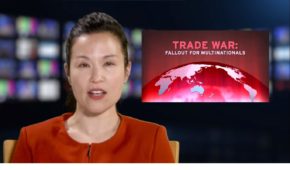
US President Donald Trump wants US companies to fight China, but they rather flee for greener pastures not to their home countries, says financial analyst Sara Hsu at the ChinaUSFacus. But some might decide to swap countries too early, she warns.
China US Focus:
Moving to another country may make sense for companies whose new grounds of operation have sufficient infrastructure to provide a proper manufacturing environment. Firms reshoring to Japan and Taiwan find themselves back home with well-constructed roads and telecommunications systems, although such factors may yield higher costs of production. Those shifting to Vietnam and Thailand are faced with poorer conditions and potential added costs of production.Vietnam has a lack of transport infrastructure, power supply networks, and urban infrastructure. Ho Chi Minh City and Hanoi face severe traffic congestion. Government funding and planning fall short of providing sufficient resources to improve the infrastructure environment. It has been estimated that the country needs to invest $400 billion in infrastructure over the next decade. However, corruption and lack of skills prevent this from occurring.Thailand has better infrastructure than Vietnam, but it has experienced bottlenecks in pushing infrastructure development further. This is because it takes the central government a long time to approve projects, and state governments lack the capacity to build the infrastructure projects that are slated for construction. Thailand’s political elite view infrastructure projects as long term, while their tenure may be short term.As companies move to developing Asian nations to take advantage of Asian supply chains, they are facing challenges. In Vietnam, companies have a harder time locating factories, and ports are struggling to coordinate container ship traffic. Costs of labor in Thailand are higher than in China, even after wage increases in China. Firms attempting to move to Indonesia, Malaysia, and Cambodia are facing similar problems. In Cambodia, for example, almost of half of all goods inspected in the last quarter did not satisfy inspection standards.This means that the trade war is forcing some companies to shift production to less attractive locations prematurely. It’s one thing to move abroad in order to increase profitability, but quite another to move out from an established location due to complications resulting from an anti-free trade stance taken by the center country. So far, companies that make Crocs, Roomba vacuums, and Yeti beer coolers are moving out of China due to increased tariffs.
Sara Hsu is a speaker at the China Speakers Bureau. Do you need her at your meeting or conference? Do get in touch or fill in our speakers’ request form.
Are you looking for more financial analysts at the China Speakers Bureau? Do check out this list.
